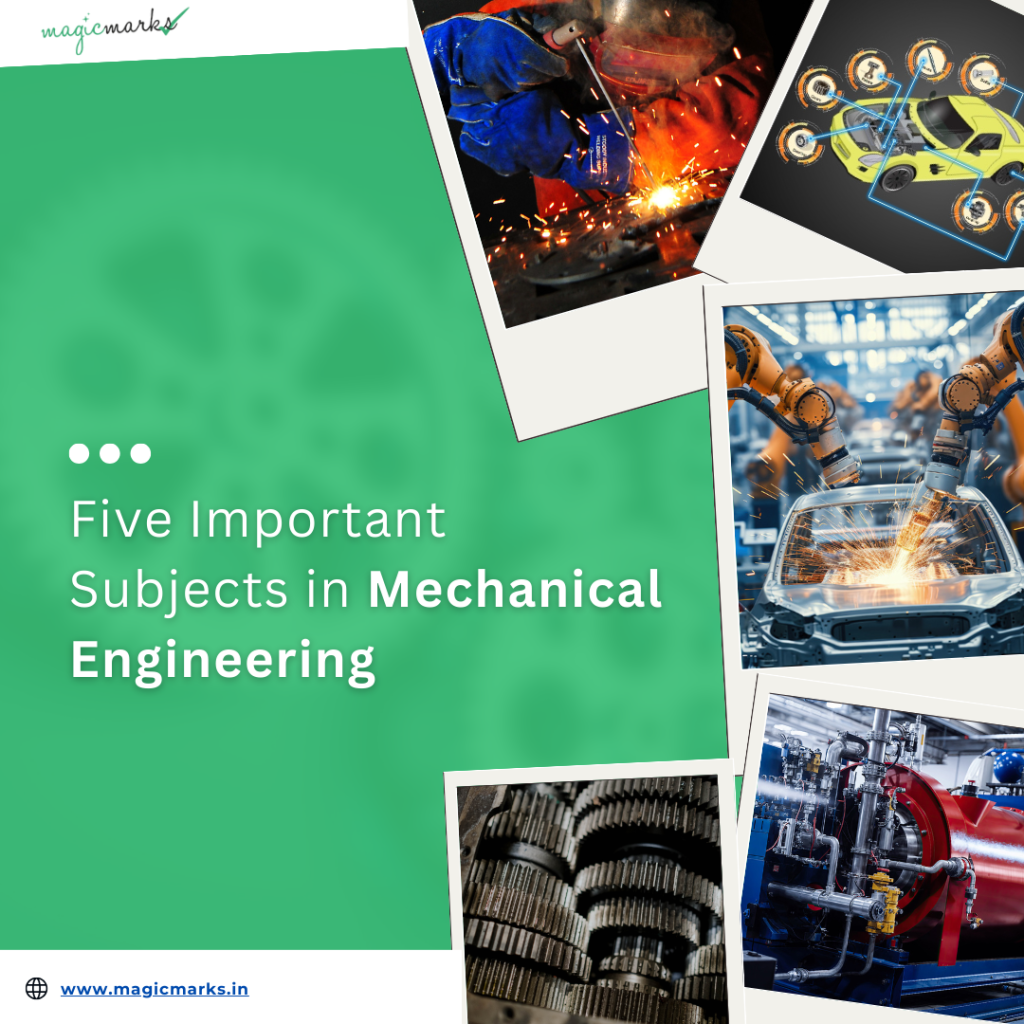Five Important Subjects in Mechanical Engineering
Apr 29, 2024

In the ever-evolving landscape of mechanical engineering, certain subjects stand as pillars, essential for understanding the intricate workings of machinery and systems. As the field embraces digital learning platforms, the accessibility and depth of knowledge have expanded exponentially. In this blog, we delve into four crucial subjects in mechanical engineering, shedding light on their significance and the role of digital platforms in mastering them.
- Thermodynamics: Understanding Energy Dynamics – Thermodynamics, the study of energy and its transformations, forms the foundation of mechanical engineering. From engines to refrigeration systems, the principles of thermodynamics govern various processes crucial for designing efficient and sustainable systems. Whether it’s the laws of thermodynamics or the analysis of power cycles, a strong grasp of this subject is indispensable for any mechanical engineer.
- Strength of Materials: Ensuring Structural Integrity – The strength of materials is another vital aspect, focusing on the behaviour of materials under different loading conditions. Engineers must comprehend the mechanical properties of materials to design structures that can withstand the forces they encounter. From tension and compression to bending and torsion, understanding these concepts is essential for creating safe and reliable structures and components.
- Machine Design: Crafting Functional Solutions – Machine design involves the application of engineering principles to create mechanical devices, ranging from simple mechanisms to complex machinery. It encompasses aspects such as kinematics, dynamics, and material selection, with the aim of optimising performance, reliability, and manufacturability. Proficiency in machine design empowers engineers to innovate and develop solutions that meet diverse needs across industries.
- Manufacturing Processes: Bridging Design and Production – Manufacturing processes play a pivotal role in bringing designs to life, transforming raw materials into finished products. Knowledge of various manufacturing techniques, such as casting, machining, and additive manufacturing, enables engineers to make informed decisions during the design phase, considering factors like cost, time, and quality. Understanding manufacturing processes ensures the feasibility and efficiency of design concepts.
- Heat and Mass Transfer: Managing Energy and Fluid Flows – Heat and mass transfer are fundamental in numerous engineering applications, including thermal systems, fluid dynamics, and chemical processes. Engineers must grasp concepts like conduction, convection, and radiation to analyse and optimise heat exchange processes. Additionally, understanding mass transfer phenomena is crucial in fields such as separation processes and environmental engineering.
In the digital age, learning these subjects has become more accessible and engaging than ever, thanks to digital learning platforms like Magic Marks. The reputed online platform offers a wealth of resources, including lectures, simulations, and interactive modules, allowing learners to grasp complex concepts at their own pace. Mechanical engineering videos, in particular, are invaluable tools for visualising theoretical concepts, conducting virtual experiments, and gaining practical insights into real-world applications. Aspiring mechanical engineers can leverage these digital resources on Magic Marks to supplement their learning, deepen their understanding, and stay abreast of advancements in the field. By embracing digital learning platforms like Magic Marks and incorporating mechanical engineering videos into their study routine, students can embark on a journey of discovery and mastery, equipped with the knowledge and skills to tackle the challenges of tomorrow’s engineering landscape.
